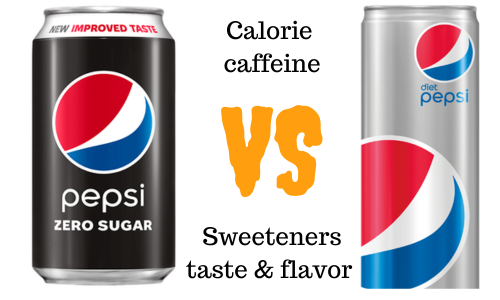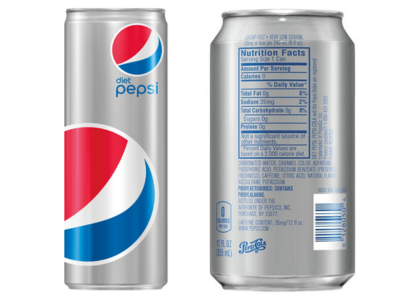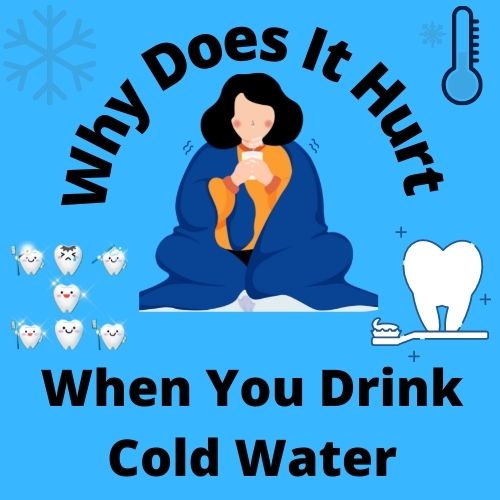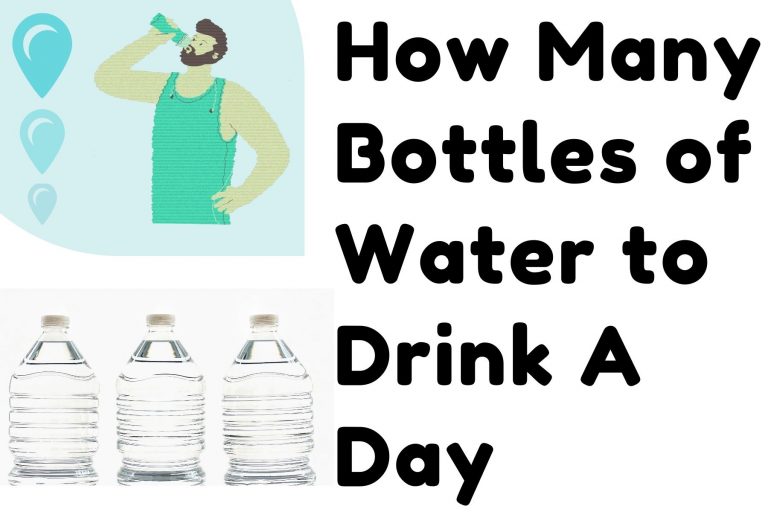Pepsi Zero vs Diet Pepsi: Which One Is Worth A Try

Recently, we’ve observed a surge in the promotion of sugar-free alternatives as they offer the same refreshing taste without any guilt. We’ve analyzed literally tons of data and statistics to set the stage for a thorough comparison between the sugar-free Pepsi options, Diet Pepsi and Pepsi Zero. As they vie for the coveted throne of the ultimate champion, allow me to spit up a few facts about the minimal differences they have. It’s all about Pepsi Zero vs Diet Pepsi. But what’s the difference between Pepsi Zero and Diet Pepsi?
And which side should you choose? On one side, Pepsi Zero stands tall with its sleek, modern allure look, offering a soda experience without the burden of calories. On the other side, Diet Pepsi stands confidently, an emblem of sugar-free tradition.
But let us ponder, amidst this intense rivalry, what sets Pepsi Zero and Diet Pepsi apart? What secrets lie hidden within their crystal-clear depths? And what makes them distinct in their pursuit of sugar-free dominance.
What are Diet Pepsi and Pepsi Zero?
Diet Pepsi and Pepsi Zero are carbonated soft drinks that offer a guilt-free option for those seeking a calorie, fat, and sugar-free beverages. They don’t lack any sweetness as they achieve their sweet taste through the use of artificial sweeteners.
To understand the differences between these drinks, let’s examine their ingredients and nutritional information. Both Diet Pepsi and Pepsi Zero contain a blend of ingredients carefully chosen to create their distinct flavors. When it comes to nutrition, they are both calorie-free options, making them appealing for those watching their calorie intake.
Scroll to the last section for our verdict on the clear winner between Diet Pepsi and Pepsi Zero.
Are There Differences between Pepsi Zero and Diet Pepsi
Certainly! Pepsi Zero and Diet Pepsi are both sugar-free alternatives, but they have a few differences. While both have zero calories and no sugar, their taste profiles vary slightly due to differences in their sweeteners. Pepsi Zero uses a blend of artificial sweeteners like aspartame and ace-K, whereas Diet Pepsi primarily uses aspartame. This distinction in sweeteners can lead to a subtle difference in taste between the two beverages.
So, are there any differences between diet Pepsi and Pepsi zero? What are they?
| Water | Sweeteners | Flavoring agents | Sugar | Caffeine | Minerals & Additives | |
| Diet Pepsi | Carbonated | Mainly Aspartame Others: Acesulfame potassium | Natural flavor, Caffeine, Phosphoric acids | No sugar | 35 mg | Citric acid, Physophoric acid, Potassium benzoate, Citric acid |
| Pepsi Zero | Carbonated | Mainly sucralose & Acesulfame potassium Others: Aspartame | Natural flavor, Caffeine, Phosphoric acids | No sugar | 38 mg | Citric acid, Physophoric acid, Potassium benzoate, Calcium Disodium Edetate and Panax Ginseng extract |

Comparison of Taste & Flavor between Diet Pepsi and Pepsi Zero
Pepsi Zero truly has that captivating factor, offering a bold and refreshing taste that’s hard to resist. With every sip, it unveils a magical fusion of flavors that simply rocks your taste buds. The carbonation in Pepsi Zero adds a delightful fizz, infusing a lively touch to the entire drinking experience.
With Diet Pepsi, you’ll encounter a lighter, yet equally delightful flavor experience. As you take your first sip, you’ll find it crispy and refreshing that instantly quenches your thirst.
The caramel color and phosphoric acid contribute to Pepsi Zero’s characteristic dark hue and lend a subtle depth to its flavor profile.
Diet Pepsi is no different in using flavorings. The caramel color and phosphoric acid in Diet Pepsi lend a touch of sophistication to its flavor, complementing the carbonated water and creating a well-rounded taste profile.
Aspartame and acesulfame potassium, those magical artificial sweeteners we’ll dive into shortly, team up to strike the ideal balance of sweetness without the burden of added calories in both Pepsi Zero and Diet Pepsi. Together, they work their enchantment, crafting a pleasantly sweet sensation that inevitably leaves you yearning for yet another sip.
Aspartame takes the lead in delivering that sweet satisfaction, flawlessly mimicking the sugary sweetness of regular soda without the calorie load. Acesulfame potassium is used to enhance the flavor, working together to create a balanced and enjoyable sweetness.
Ultimately, the difference in taste between Diet Pepsi and Pepsi Zero Sugar can be attributed to their respective formulations and the lyrical blend of ingredients. While Diet Pepsi focuses on a lighter and crisper taste, Pepsi Zero Sugar aims to replicate the taste of regular Pepsi in a sugar-free format.
Comparison of Artificial Sweeteners between Diet Pepsi and Pepsi Zero
In Pepsi Zero, we have two extraordinary artificial sweeteners taking the stage. First up is Acesulfame Potassium, a sweetener with a name that sounds like it belongs in a wizard’s spellbook. It brings a burst of sweetness to each sip, making you wonder how something so tiny can pack such a powerful punch.
And then we have Aspartame, the sweet sorcerer that adds its own special touch to the mix. Together, they create a symphony of flavors, making Pepsi Zero a guilt-free delight.
Over in Diet Pepsi, we encounter the same magical duo of artificial sweeteners, but with a unique twist. Aspartame takes the spotlight, showing off its talent for delivering that lip-smacking sweetness without any calories. It’s like a sweet genie granting your wish for a sugar-free indulgence. And joining the party is Acesulfame Potassium, the trusty sidekick, adding an extra dose of sweetness to the mix.
Diet Pepsi uses aspartame as its primary sweetener, along with acesulfame potassium (Ace-K). Pepsi Zero Sugar, on the other hand, uses a blend of sucralose (Splenda) and Ace-K for sweetness. The choice of sweeteners may affect the taste and aftertaste, so personal preference plays a role here
Comparison of Branding between Diet Pepsi and Pepsi Zero
Diet Pepsi has been available for a longer time and has established itself as a diet soda option for many consumers. However, in 2016, PepsiCo made a bold move. They decided to revamp Diet Pepsi, tweaking its formula to address concerns regarding its sweetener, aspartame. The new and improved Diet Pepsi emerged, bidding farewell to aspartame and ushering in a blend of alternative sweeteners. This rebranding was a calculated step to meet the evolving preferences of health-conscious consumers.
Pepsi Zero Sugar was introduced as a replacement for Pepsi Max and has gained popularity as a sugar-free alternative. With its sleek black packaging and modern logo design, Pepsi Zero Sugar exudes a sense of contemporary coolness. It swiftly gained popularity, quickly becoming a fan favorite among those seeking a guilt-free cola experience.
Pepsi Zero Sugar’s rise to popularity can be attributed to its ability to provide a satisfying sugar-free alternative without compromising taste. The use of sucralose, commonly known as Splenda, combined with acesulfame potassium (Ace-K), creates a flavor profile that resonates with many consumers. This winning formula has propelled Pepsi Zero Sugar to the forefront of the diet soda landscape.
Comparison of Caffeine Content between Diet Pepsi and Pepsi Zero
In Pepsi Zero, you’ll find a caffeine content of 38 mg per serving. This modest dose of caffeine can give you a gentle lift, providing a burst of energy to help you conquer your tasks and stay alert.
When it comes to Diet Pepsi, you’ll discover a slightly lower caffeine content compared to Pepsi Zero. Each serving contains 35 mg of caffeine, offering a similar effect of alertness and enhanced focus.
The caffeine in Pepsi Zero acts as a natural stimulant, helping to increase focus and ward off drowsiness. So, whether you’re in need of a pick-me-up in the morning or an afternoon boost, Pepsi Zero’s caffeine content can be just what you’re looking for.
This caffeine content in Diet Pepsi is carefully balanced to provide a mild boost without overwhelming your senses. It’s the perfect companion for those seeking a refreshing and invigorating beverage.
However, both Pepsi Zero & Diet Pepsi offer caffeine free alternatives.
Comparison of Sugar Content between Diet Pepsi and Pepsi Zero
As the name suggests, Pepsi Zero Sugar is formulated to contain no sugar at all. It offers the same bold and satisfying flavor as regular Pepsi, but without the added sugar. Instead of using sugar as a sweetener, it utilizes artificial sweeteners like aspartame and acesulfame potassium to provide the desired sweetness without the calories or sugar content.
Similar to Pepsi Zero Sugar, Diet Pepsi also contains no sugar. It is specifically designed for those seeking a sugar-free alternative. Diet Pepsi uses the same artificial sweeteners as Pepsi Zero Sugar, namely aspartame and acesulfame potassium.
Comparison of Calorie Content between Diet Pepsi and Pepsi Zero
Pepsi Zero is a calorie-free soft drink, meaning it contains no calories per serving. This makes it an attractive choice for individuals who want to enjoy a refreshing soda without adding to their daily caloric intake.
By eliminating calories, Pepsi Zero offers a guilt-free option for those looking to manage their weight or reduce overall calorie consumption.
Similar to Pepsi Zero, Diet Pepsi is also calorie-free. It contains no calories per serving, allowing individuals to enjoy a fizzy, sweet beverage without the worry of compromising their calorie goals.
Diet Pepsi has been a long-standing choice for individuals seeking a low-calorie alternative to traditional sodas. Its calorie-free nature makes it an appealing option for those looking to enjoy a sweet carbonated beverage while maintaining a calorie-controlled diet.
Comparison of Other Nutrients & Additives between Diet Pepsi and Pepsi Zero
While these sugar-free beverages may boast zero calories, there are still a few noteworthy components to consider. So, let’s unravel the story of these additional nutrients and additives that add depth to the taste and experience of these beloved drinks.
Sodium
Within each serving of Pepsi Zero, you’ll find 40mg of sodium. It’s a modest amount that adds a subtle touch of flavor to enhance the overall taste experience.
On the other hand, Diet Pepsi contains slightly less sodium, with 35mg per serving. Though the difference is minimal, it showcases the careful crafting of the beverage’s flavor profile.
Phosphorus
Behold the presence of 50mg of phosphorus in Pepsi Zero, offering a small but notable contribution to your daily intake. Phosphorus plays a vital role in the body’s overall functioning, including the health of bones and teeth.
While Diet Pepsi contains a slightly lower amount of phosphorus at 30mg per serving, it still makes a modest contribution to your phosphorus intake.
It’s important to note that the sodium, phosphorus, and caffeine content in Pepsi Zero and Diet Pepsi are relatively low and unlikely to significantly impact your overall nutrient intake.
Comparison of Nutrition info between Pepsi Zero and Diet Pepsi
| Nutritional Facts | Diet Pepsi | Pepsi Zero |
|---|---|---|
| Serving size | 12 fl oz (355 mL) | 12 fl oz (355 mL) |
| Calories | 0 | 0 |
| Sugar | 0 | 0 |
| Carbohydrates | 0 | 0 |
| Protein | 0 | 0 |
| Total Fat | 0 | 0 |
| Sodium | 35 mg | 40 mg |
| Phosphorus | 30 mg | 50 mg |
| Caffeine | 35 mg | 38 mg |
| Sweeteners | Acesulfame Potassium, Aspartame | Sucralose, Acesulfame Potassium, Aspartame |
Pepsi Zero vs Diet Pepsi: Which One Should You Choose

The ultimate showdown between Diet Pepsi and Pepsi Zero Sugar, the final verdict ultimately comes down to personal preference. Both beverages offer a sugar-free alternative to regular Pepsi, allowing you to enjoy the satisfying taste without the added calories. Here’s the concluding verdict:
If you seek a lighter and more refreshing taste with a mild energy boost, Diet Pepsi is your ideal companion. With its crisp flavor profile and the use of aspartame and acesulfame potassium as sweeteners, it delivers a guilt-free soda experience that won’t compromise your calorie goals.
On the other hand, if you crave a bolder and more robust flavor reminiscent of regular Pepsi, Pepsi Zero Sugar takes the lead. Its rich taste and the same sweeteners as Diet Pepsi provide a satisfying and full-bodied soda experience, perfect for those who desire a stronger flavor punch.
Last Words
Remember, taste is subjective, so it’s important to follow your own preferences when making the final choice between Pepsi Zero vs Diet Pepsi. Consider factors like sweetness level, caffeine content, and your personal dietary needs. Whether you lean towards the lighter and refreshing appeal of Diet Pepsi or the bold and robust flavor of Pepsi Zero Sugar, both options offer a sugar-free indulgence to satisfy your soda cravings.
So, sip, savor, and let your taste buds guide you to the winning choice. Whether it’s Diet Pepsi or Pepsi Zero Sugar, enjoy the delightful flavors and embrace the guilt-free pleasure of a sugar-free soda experience. Cheers to finding your perfect match and raising a glass to your personal soda victory!
Here’s the revised FAQ section with the questions formatted in H3 headings:
FAQs: Pepsi Zero vs. Diet Pepsi
Is Pepsi Zero Sugar free?
Yes, Pepsi Zero is sugar-free. It is formulated to provide a sweet taste without any sugar, relying on artificial sweeteners instead.
Is Diet Pepsi a low-calorie cola?
Yes, Diet Pepsi is considered a low-calorie cola. It contains very few calories (typically zero calories) and is designed as a lighter alternative to regular Pepsi, using artificial sweeteners to maintain sweetness without the calories associated with sugar.
What is the main difference between Pepsi Zero and Diet Pepsi?
Pepsi Zero Sugar is marketed as a zero-calorie soda with a taste profile closer to regular Pepsi, while Diet Pepsi is designed to be a low-calorie alternative with a distinct flavor.
Are Pepsi Zero and Diet Pepsi both caffeine-free?
No, both beverages typically contain caffeine unless specified as caffeine-free versions. Always check the label for specific information.
Which one has more artificial sweeteners?
Pepsi Zero generally uses a combination of aspartame and acesulfame potassium, while Diet Pepsi uses aspartame. The overall sweetness and flavor may vary due to the different formulations.
Is there a difference in calories between the two?
Both Pepsi Zero and Diet Pepsi contain zero calories, making them similar in terms of caloric content.
Which drink has a sweeter taste?
Pepsi Zero is often considered sweeter and more similar to the original Pepsi, while Diet Pepsi has a lighter, less sweet taste.
Can I use Pepsi Zero and Diet Pepsi in recipes?
Yes, both can be used in recipes as substitutes for regular soda, but their flavor profiles may affect the final taste of your dish or drink.
Are there any health concerns associated with either drink?
Both beverages contain artificial sweeteners, which some studies suggest may have health implications. Moderation is key, and it’s always best to consult a healthcare professional if you have specific health concerns.
Which drink is more popular among consumers?
Preferences vary; however, Pepsi Zero has gained popularity recently, especially among those seeking a taste closer to regular Pepsi.
Does either drink contain sodium?
Yes, both Pepsi Zero and Diet Pepsi contain sodium, but the levels may vary. Check the nutritional label for specific amounts.
Can I find both drinks in the same packaging sizes?
Yes, both Pepsi Zero and Diet Pepsi are typically available in a variety of packaging sizes, including cans, bottles, and multi-packs.



